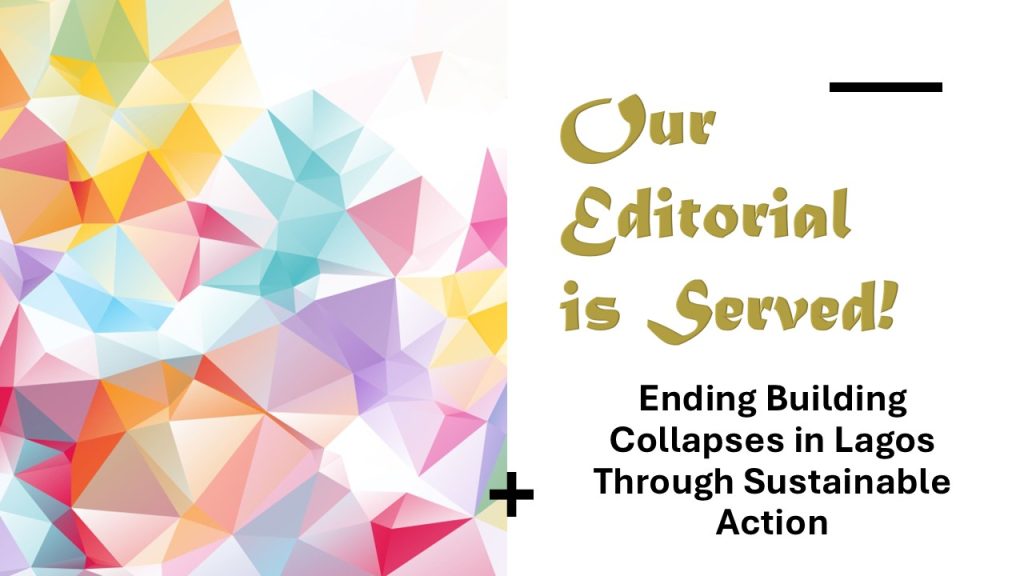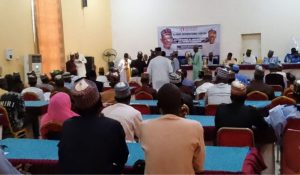
Ending Building Collapses in Lagos Through Sustainable Action
The recent building collapse on Amusu Street in the Iganmu area of Lagos serves as another tragic reminder of the persistent dangers lurking in our urban environment.
Despite numerous past incidents, urgent actions to enforce safety measures and prevent further loss of lives remain insufficient. As the Lagos State Commissioner for Environment and Water Resources, Tokunbo Wahab, reiterated, this incident highlights the crucial need for greater compliance with the state’s environmental policies. However, compliance alone is not enough. A fundamental shift towards sustainable urban planning, construction, and management is imperative if we are to prevent future disasters.
Building collapses represent not only a failure in structural integrity but also a breakdown in societal systems. Sustainable development seeks to meet the needs of the present without compromising the future. Yet, every collapse erases years of progress, sets back livelihoods, and results in preventable loss of life. This grim reality underscores the importance of viewing urban construction through the lens of sustainability, where safety, environmental protection, and community welfare are prioritized over short-term gains or negligence.
One of the critical areas where we must intensify efforts is in regulatory enforcement. As Commissioner Wahab rightfully noted, the policies governing building and environmental standards are designed to protect, not punish. However, enforcement is key. Too often, we see building collapses blamed on non-compliance, with some structures erected without the proper approvals, or shortcuts taken to reduce costs. While these infractions may appear to benefit developers in the short term, the long-term consequences can be fatal, as seen repeatedly in Lagos.
What needs to be emphasized is that sustainability is not just about reducing emissions or conserving resources; it’s about fostering resilient communities. In the context of urban planning, sustainability must encompass the construction of buildings that can withstand environmental pressures and are built to last. This means stronger collaboration between architects, engineers, developers, and regulatory bodies, ensuring that buildings are not just functional but sustainable and safe for the people living and working in them.
Also, there needs to be an awareness campaign focused on changing mindsets across all levels of society, from developers to residents. The public should be educated about the importance of compliance with building regulations and environmental standards. This collective responsibility can help mitigate risks, as individuals become proactive in reporting unsafe practices or faulty structures.
Another essential component of this issue is transparency. Stakeholders, including regulatory bodies, must operate with openness. The residents of Lagos deserve to know which buildings have passed safety inspections and which developers are abiding by the law. If there are issues with a structure, those affected should be informed promptly, and action should be swift. Transparency builds trust and encourages accountability, two ingredients that are crucial for creating a sustainable urban environment.
Honestly, it is essential to take a long-term view. As cities grow and urbanization increases, so too do the pressures on infrastructure. Lagos, with its expanding population, is particularly vulnerable. The government must invest in more comprehensive urban planning that takes into account future growth and climate resilience. Modern building technologies, sustainable materials, and eco-friendly construction methods should be the norm, not the exception.
Commissioner Wahab’s call for cooperation is vital, but we must go beyond words and take action. If we want to ensure that the recent collapse in Iganmu is the last of its kind, we need to embed sustainability into every stage of our building processes—planning, design, construction, and maintenance. The cost of inaction is far too great. It is time for Lagos to embrace a future where no one fears the buildings they live or work in, and where the urban landscape is as safe as it is sustainable.
Through a united effort from all stakeholders, we can transform this tragedy into a turning point, building a Lagos that is stronger, safer, and more resilient for future generations.








